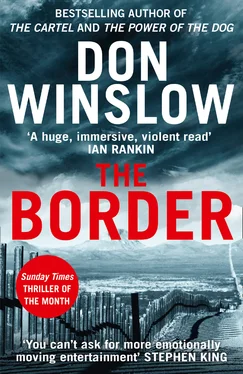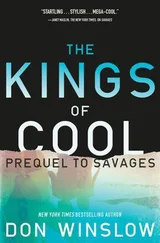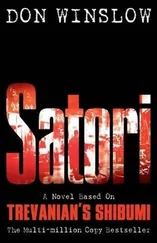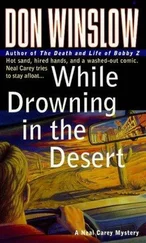It was the Zetas who did that to her.
Keller went to Guatemala to kill the men who ordered it, Ochoa and Forty. Even though she begged him not to seek revenge. Now she wraps her arms around him and holds him close. “I was afraid you wouldn’t come back.”
“You said you weren’t sure if you wanted me to.”
“That was a terrible thing for me to say.” She lays her head against his chest. “I’m so sorry.”
“No need.”
She’s quiet for a few seconds, and then asks, “Is it over?”
“For me it is.”
He feels her sigh. “What are you going to do now?”
“I don’t know.”
It’s true. He hadn’t expected to come back from Dos Erres alive, and now that he has, he doesn’t know what to do with his life. He knows he isn’t going back to Tidewater, the security firm that conducted the Guatemala raid, and he sure as shit isn’t going back to DEA. But as for what he is going to do, he doesn’t have a clue.
Except here he is in Valverde.
Drawn to her.
Keller knows that they can never have what they once had. There’s too much shared sorrow between them, too many loved ones killed, each death like a stone in a wall built so high that it can’t be breached.
“I have afternoon clinic hours,” Marisol says.
She’s the town’s mayor and its only doctor. There are thirty thousand people in the Juárez Valley and she’s the one full-time physician.
So she started a free clinic in town.
“I’ll walk you,” Keller says.
Marisol hangs the cane on her wrist and grabs the handrail as she makes her way down the exterior staircase, and Keller is half-terrified she’s going to fall. He walks behind with one hand ready to catch her.
“I do this several times a day, Arturo,” she says.
“I know.”
Poor Arturo, she thinks. There is such a sadness about him.
Marisol knows the price he’s already paid for his long war—his partner murdered, his family estranged, the things he has seen and done that wake him up at night, or worse, trap him in nightmares.
She’s paid a price herself.
The external wounds are obvious, the chronic pain that accompanies them somewhat less so, but still all too real. She’s lost her youth and her beauty—Arturo likes to think that she’s still beautiful, but face it, she thinks, I’m a woman with a cane in my hand and a bag of shit strapped to my back.
That isn’t the worst of it. Marisol is insightful enough to know that she has a bad case of survivor’s guilt—why is she alive when so many others aren’t?—and she knows that Arturo suffers from the same malady.
“How’s Ana doing?” Keller asks.
“I’m worried about her,” Marisol says. “She’s depressed, drinking too much. She’s at the clinic, you’ll see her.”
“We’re a mess, aren’t we? All of us.”
“Pretty much,” Marisol says.
All veterans of an unspeakable war, she thinks. From which there has been—in the pop-speak of the day—no “closure.”
No victory or defeat.
No reconciliation or war crimes tribunals. Certainly no parades, no medals, no speeches, no thanks from a grateful nation.
Just a slow, sodden lessening of the violence.
And a soul-crushing sense of loss, an emptiness that can’t be filled no matter how busy she keeps herself at the office or the clinic.
They walk past the town square.
The old people in the gazebo watch them.
“This will start the rumor mill grinding,” Marisol says. “By five o’clock I’ll be pregnant with your baby. By seven we’ll be married. By nine you’ll have left me for a younger woman, probably a güera .”
The people of Valverde know Keller well. He lived in their town after Marisol was shot, nursing her back to health. He went to their church, to their holidays, to their funerals. If not exactly one of their own, he isn’t a stranger, either, not just another yanqui .
They love him because they love her.
Keller feels more than sees the car cruise behind them on the street, slowly reaches for the gun under his windbreaker and keeps his hand on the grip. The car, an old Lincoln, crawls past them. A driver and a passenger don’t bother to disguise their interest in Keller.
Keller nods to them.
The halcón nods back as the car drives on.
Sinaloa is keeping an eye on him.
Marisol doesn’t notice. Instead, she asks, “Did you kill him, Arturo?”
“Who?”
“Barrera.”
“There’s an old, bad joke,” Keller says, “about this woman on her wedding night. Her husband inquires if she’s a virgin and she answers, ‘Why does everyone keep asking me that?’”
“Why does everyone keep asking you that?” Marisol knows an evasion when she hears one. They had made a promise that they would never lie to each other, and Arturo is a man of his word. By his not answering directly, she suspects what the truth is. “Just tell me the truth. Did you kill him?”
“No,” Keller says. “No, Mari, I didn’t.”
Keller has been living in Ana’s house in Juárez only a couple of days when Eddie Ruiz shows up. He made the veteran reporter an offer and she took it—the house had too many memories for her.
“Crazy Eddie” was on the Guatemala raid. Keller had watched as the young narco—a pocho, a Mexican American from El Paso—poured a can of paraffin over the wounded Zeta boss Heriberto Ochoa and then set him on fire.
When Eddie walks into Keller’s house in Juárez, he isn’t alone.
With him is Jesús Barajos—“Chuy”—a seventeen-year-old schizophrenic battered into psychosis by the horrors he endured, the horrors he witnessed, and the horrors he inflicted on others. A narco hit man at eleven years old, the kid never had a chance, and Keller found him in the Guatemalan jungle, calmly kicking a soccer ball onto which he had sewn the face of a man he had decapitated.
“Why did you bring him here?” Keller asks, looking at Chuy’s blank stare. He’d almost shot the kid himself down in Guatemala. An execution for murdering Erika Valles.
And Ruiz brought him here? To me?
“I didn’t know what else to do with him,” Eddie says.
“Turn him in.”
“They’ll kill him,” Eddie says. Chuy walks past them, curls up on the couch, and falls asleep. Small and scrawny, he has the feral look of an underfed coyote. “Anyway, I can’t take him where I’m going.”
“What are you going to do?” Keller asks.
“Cross the river and turn myself in,” Eddie says. “Four years and I’m out.”
It’s the bargain Keller had arranged for him.
“How about you?” Eddie asks.
“I don’t have a plan,” Keller says. “Just live, I guess.”
Except he has no idea how.
His war is over and he has no idea how to live.
Or what to do with Chuy Barajos.
Marisol vetoes his idea of turning the boy in to the Mexican authorities. “He wouldn’t survive.”
“Mari, he killed—”
“I know he did,” she says. “He’s sick, Arturo. He needs help. What kind of help will he get in the system?”
None, Keller knows, not really sure that he cares. He wants his war to be over, not to drag it around with him like a ball and chain in the person of a virtual catatonic who had slaughtered people he loved. “I’m not you. I can’t forgive like you do.”
“Your war won’t end until you do.”
“Then I guess it won’t end.”
But he doesn’t turn Chuy in.
Mari finds a psychiatrist who will treat the kid gratis and arranges for his meds through her clinic, but the prognosis is “guarded.” The best Chuy can hope for is a marginal existence, a shadow life with the worst of his memories at least muted if not erased.
Читать дальше












